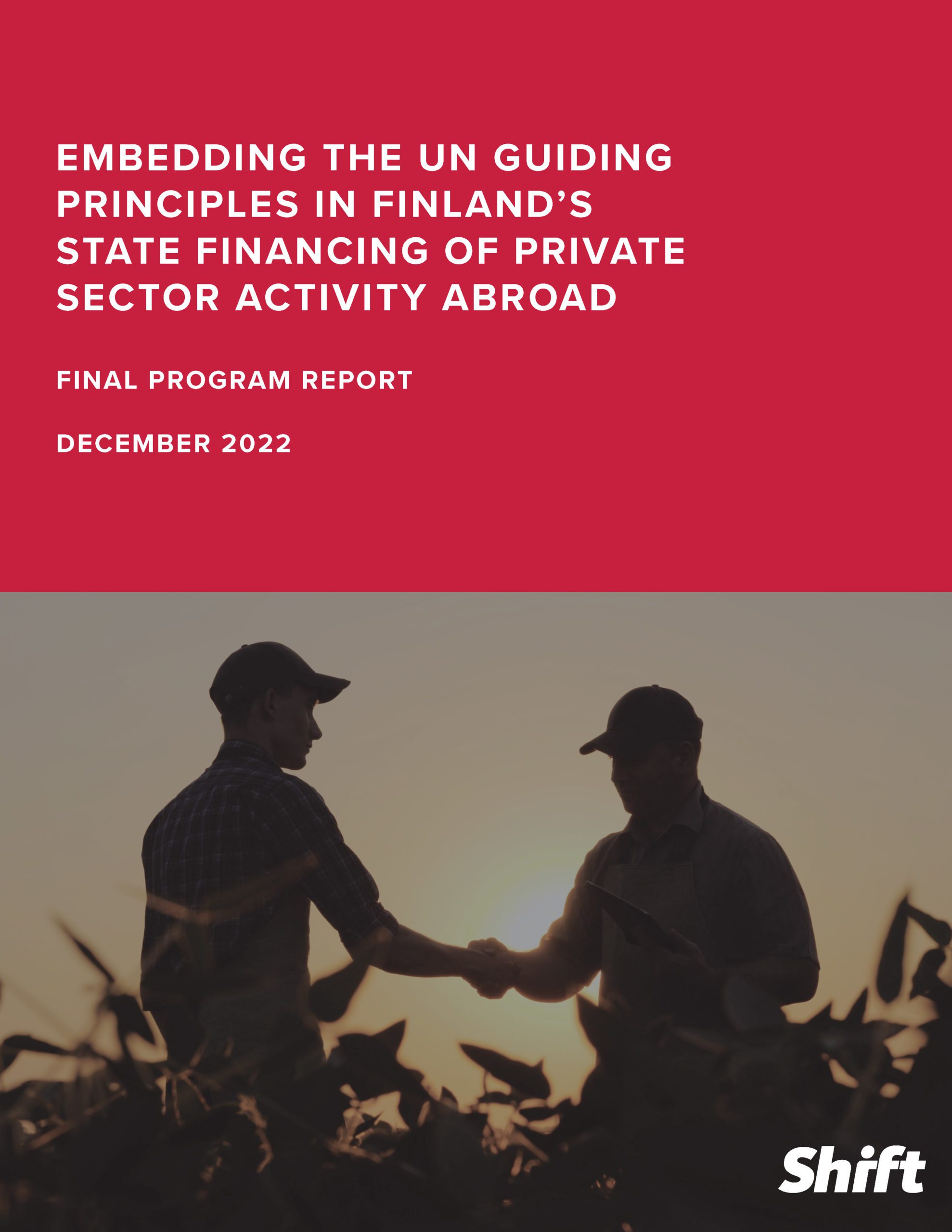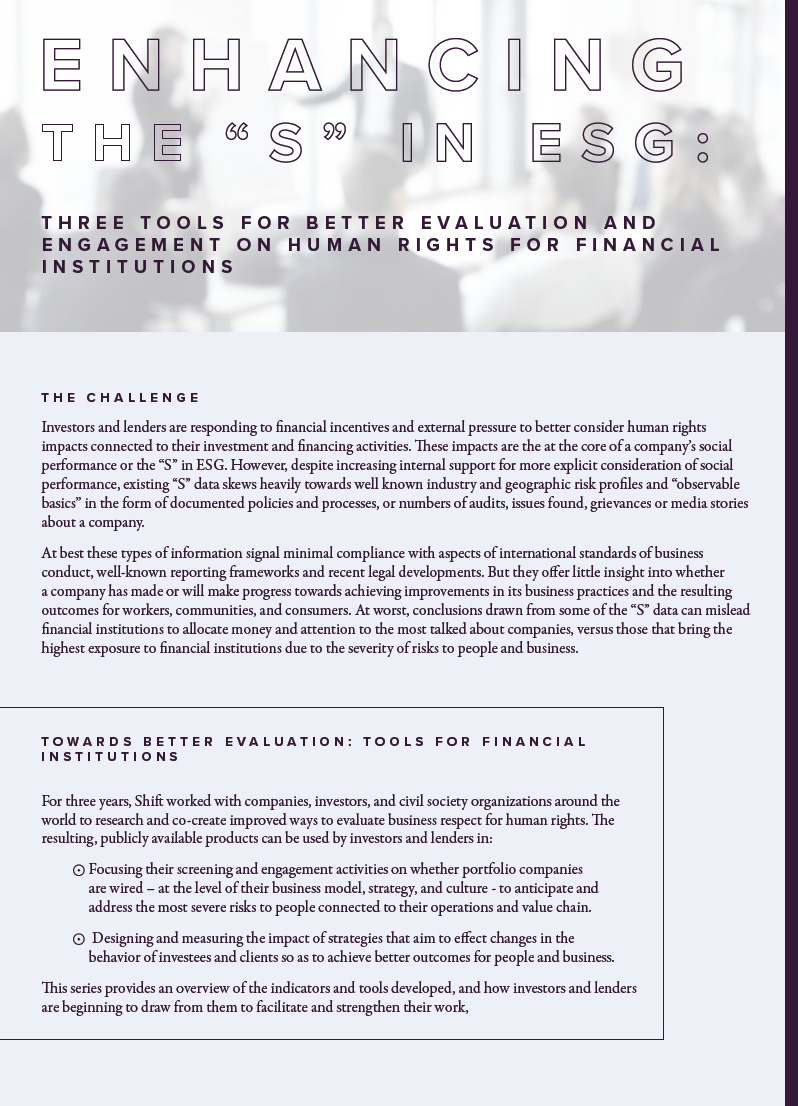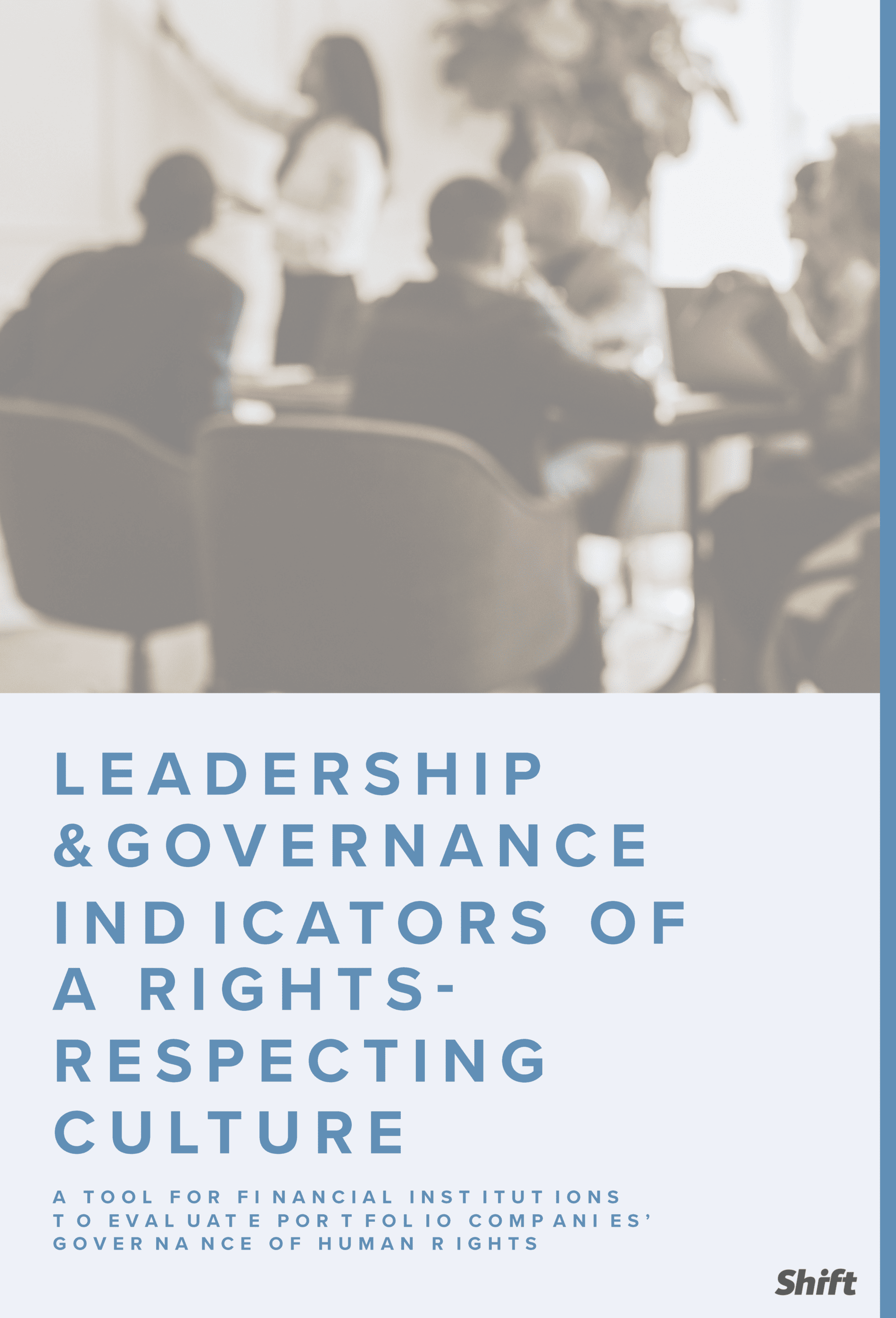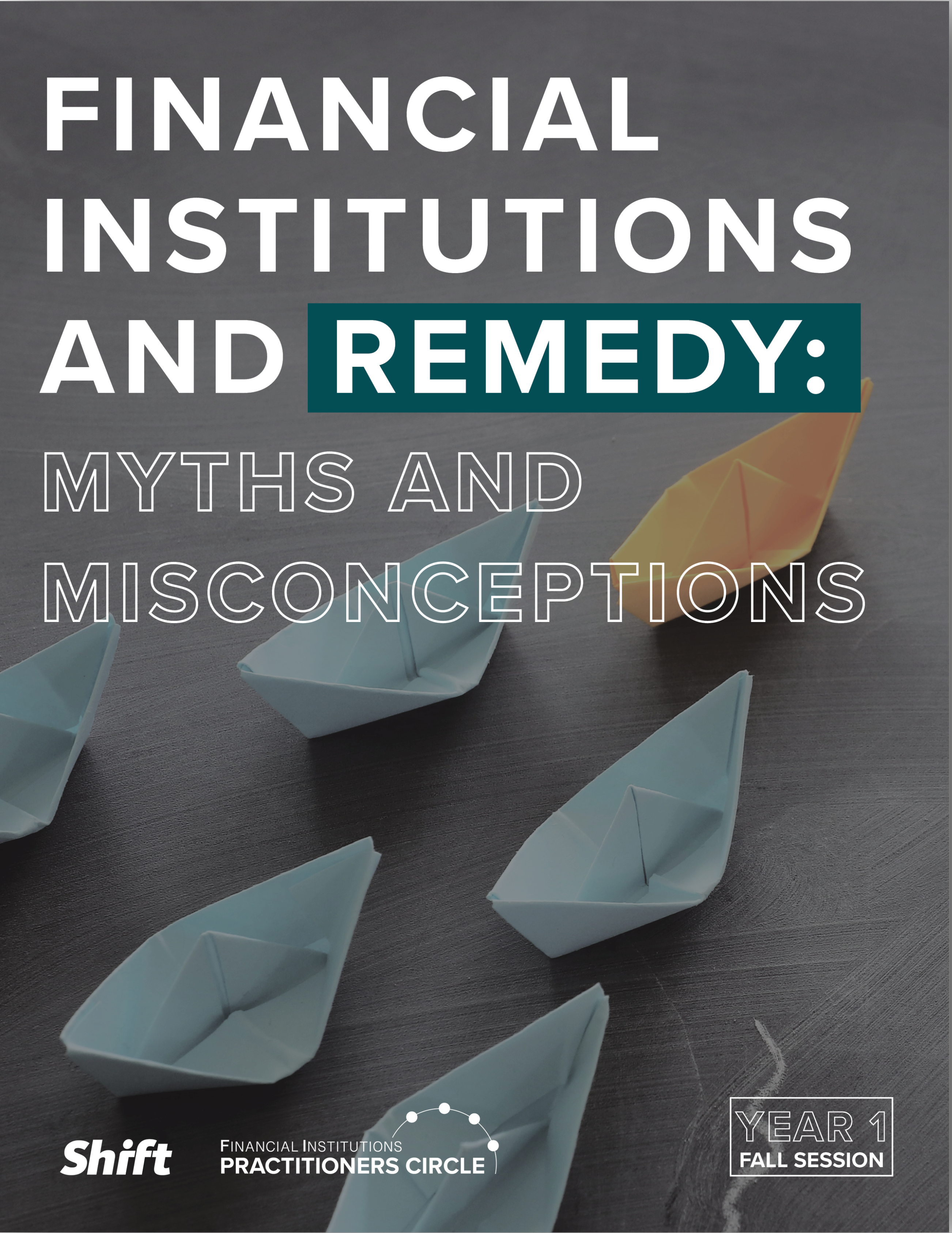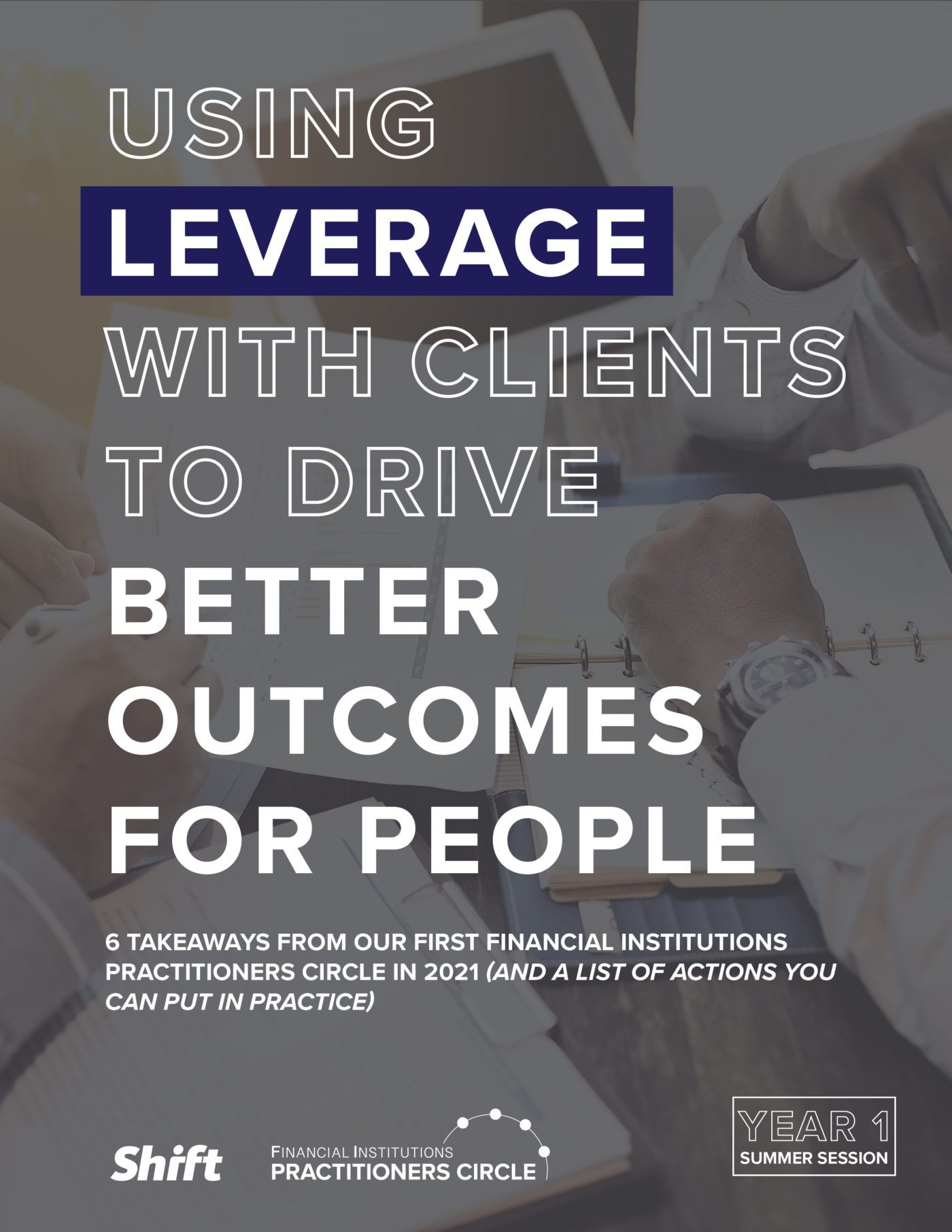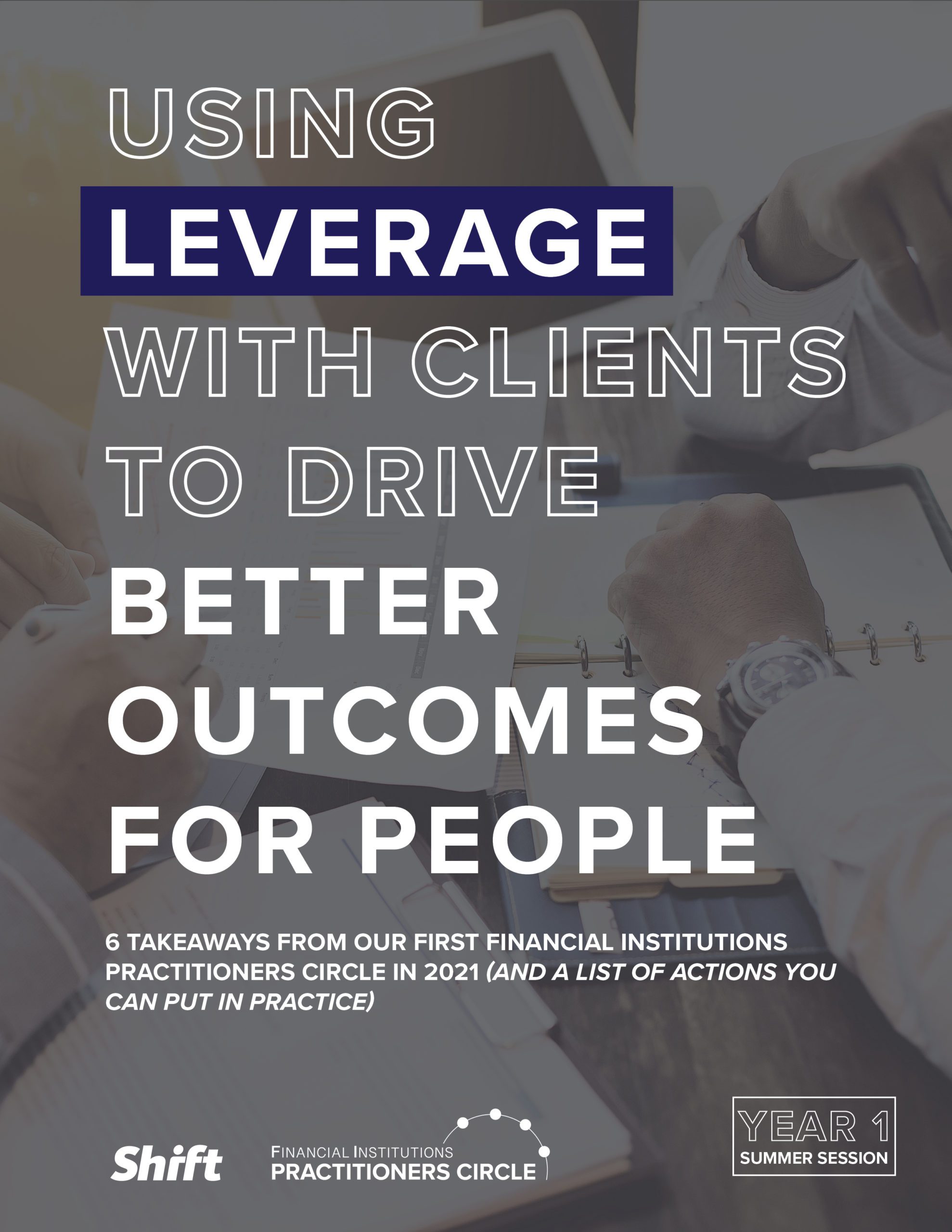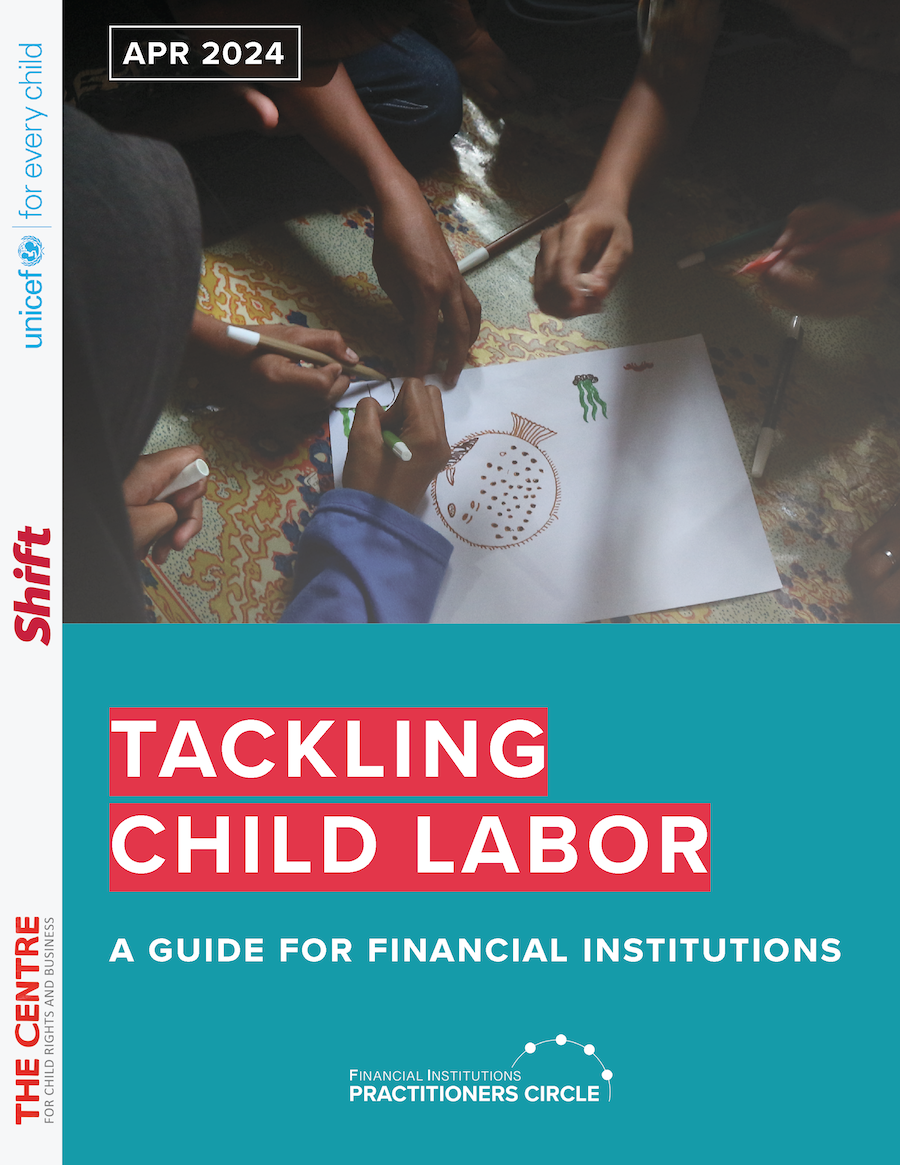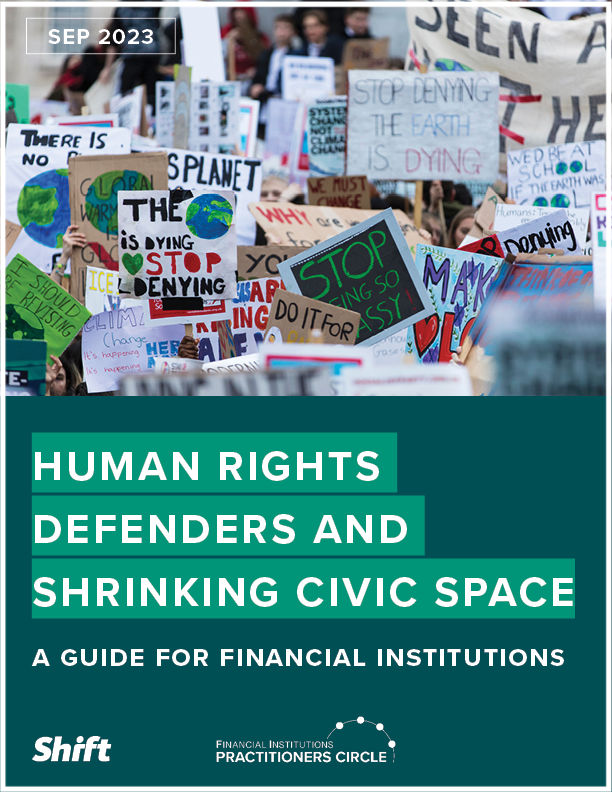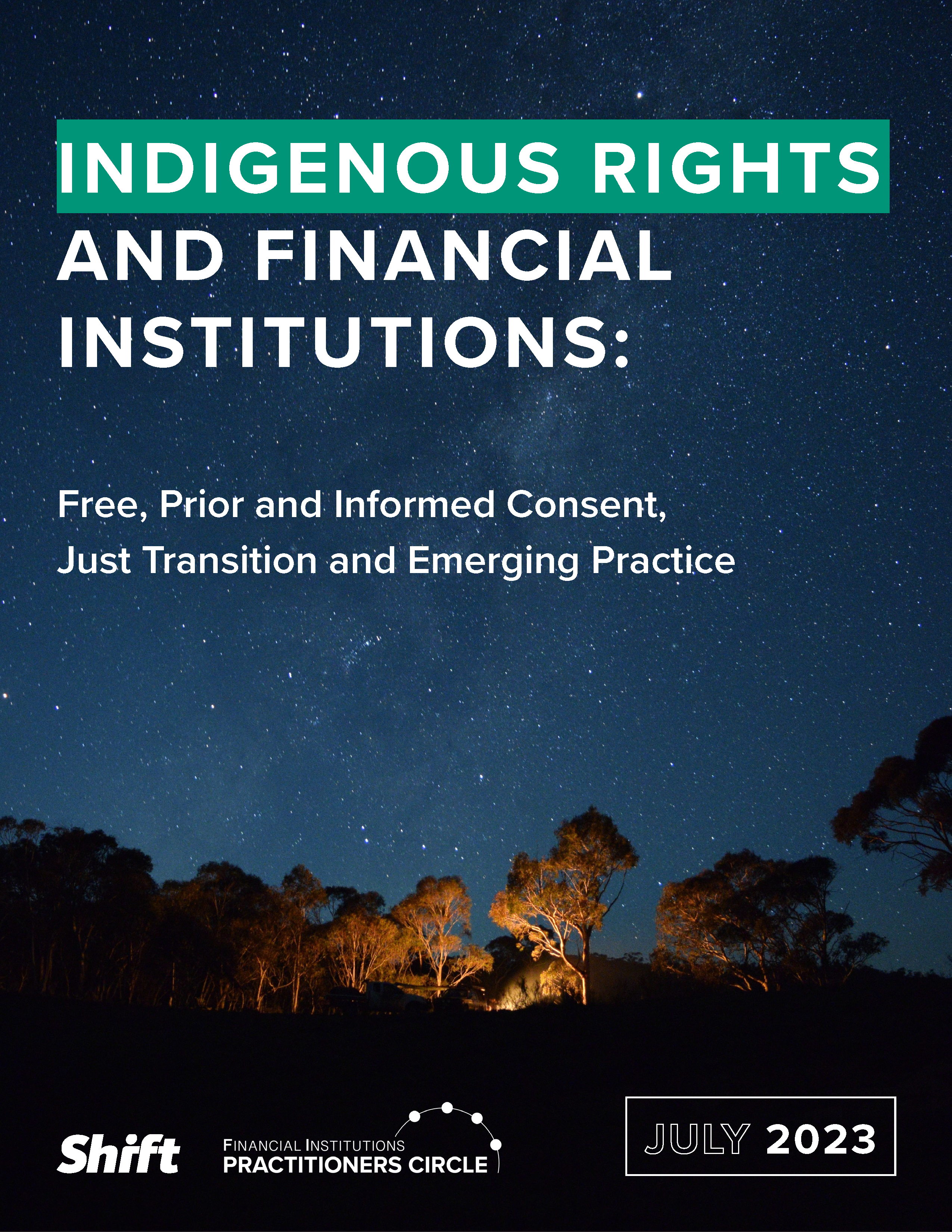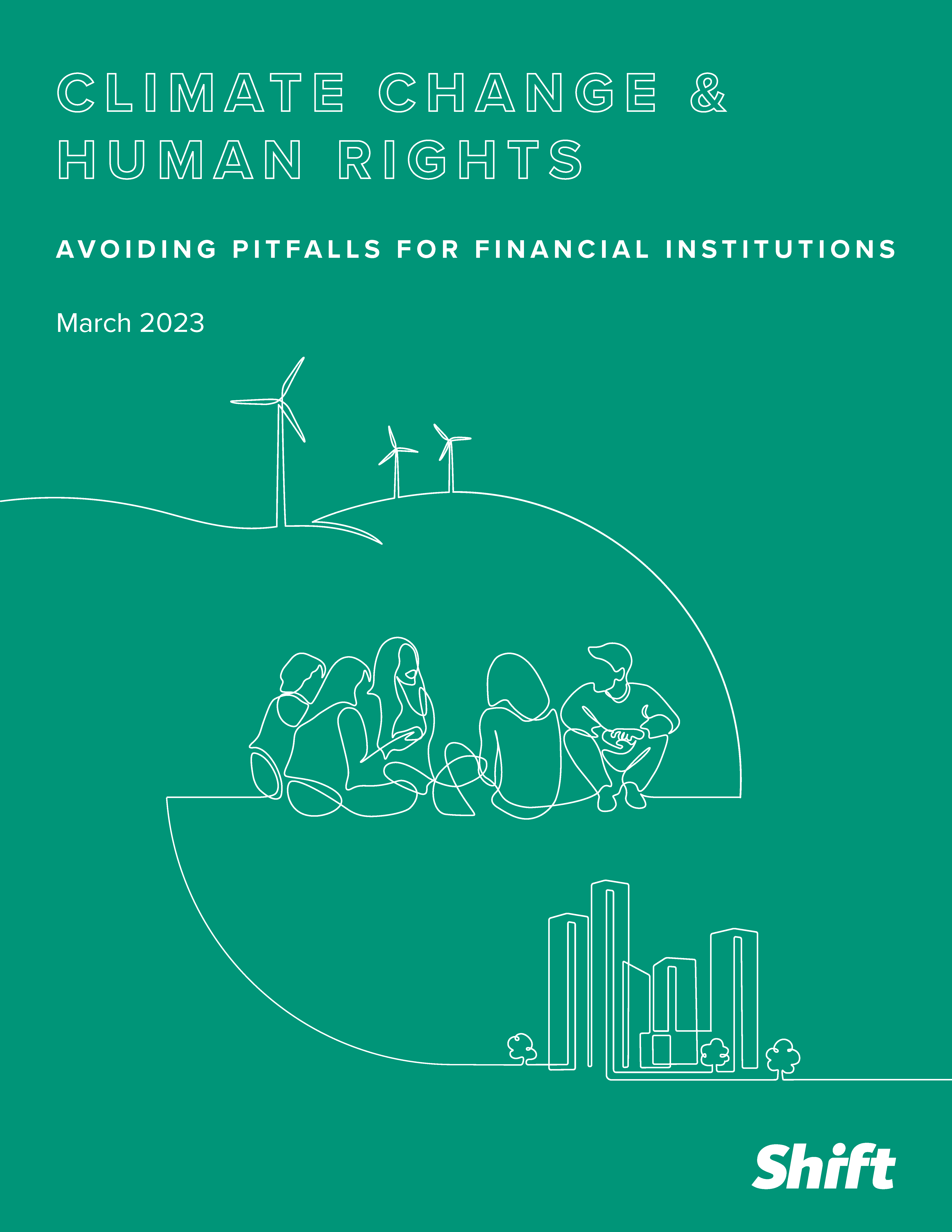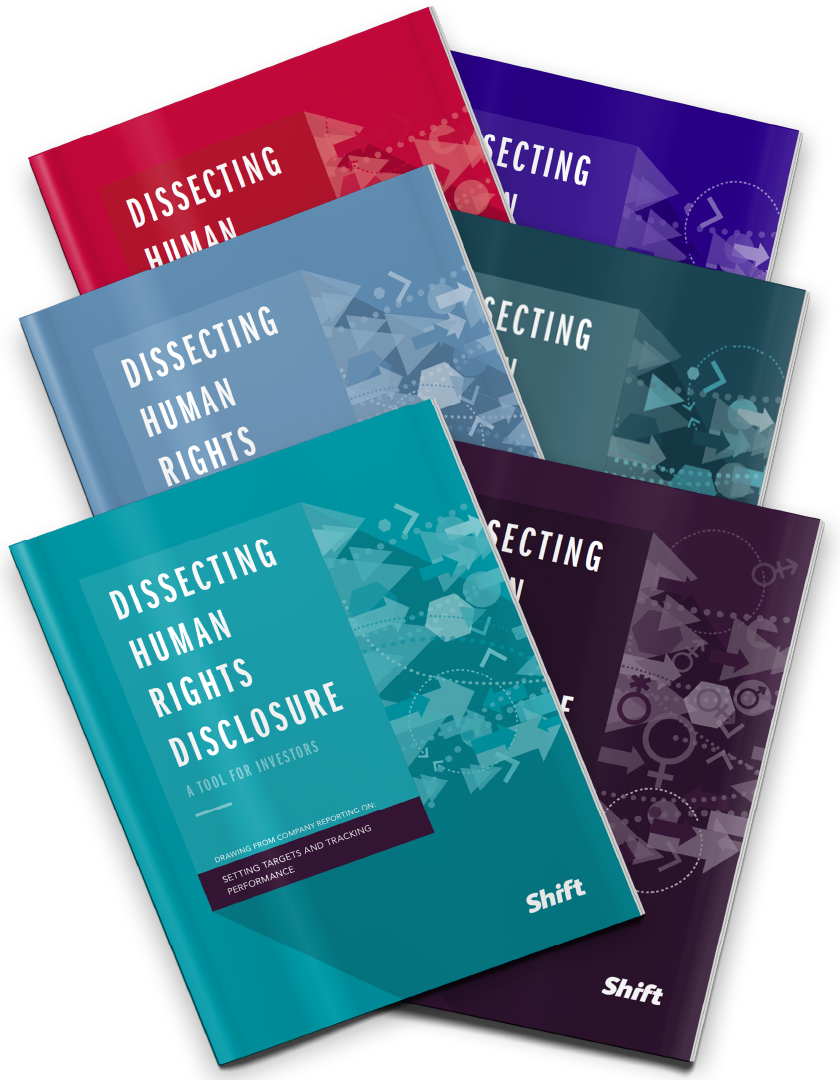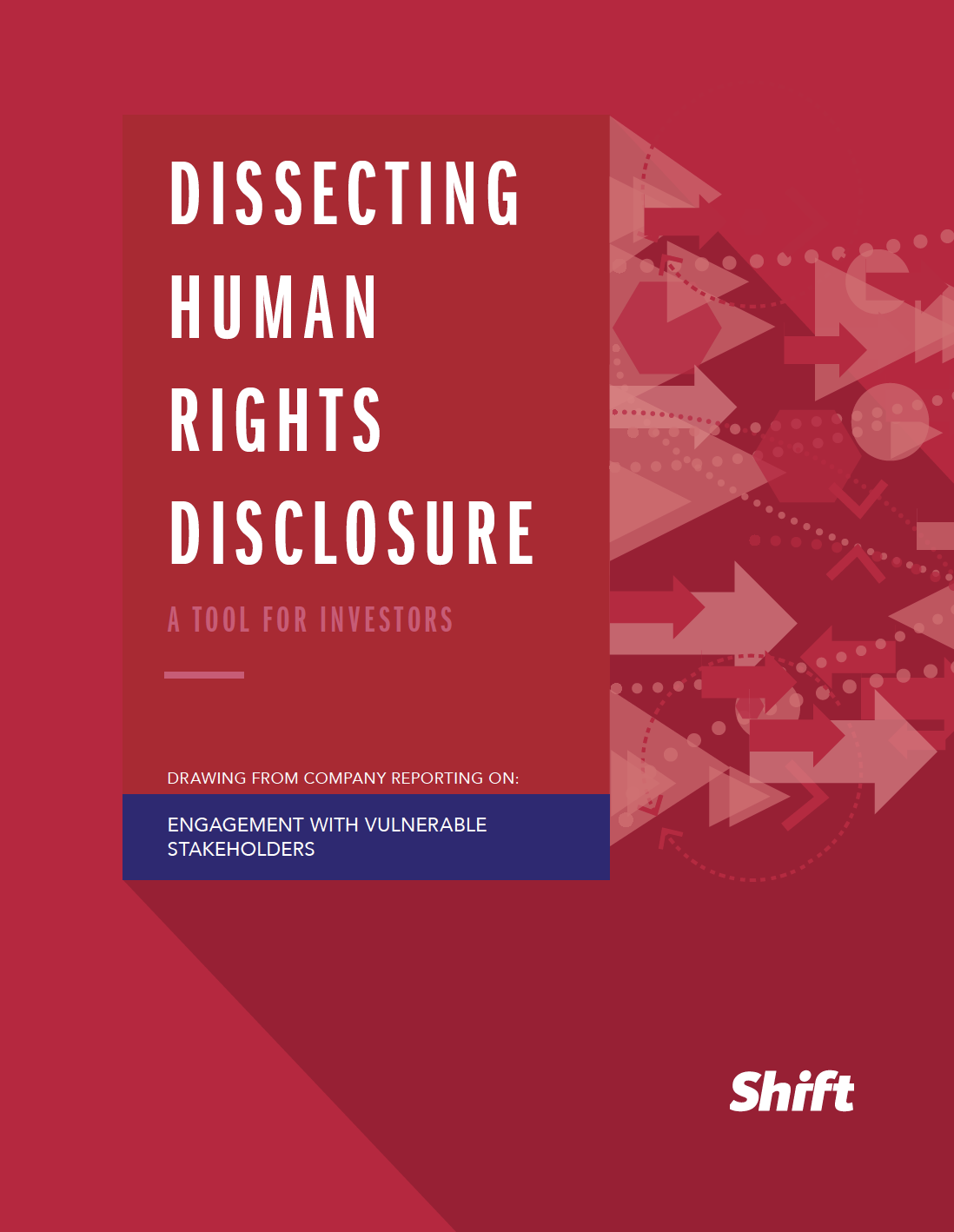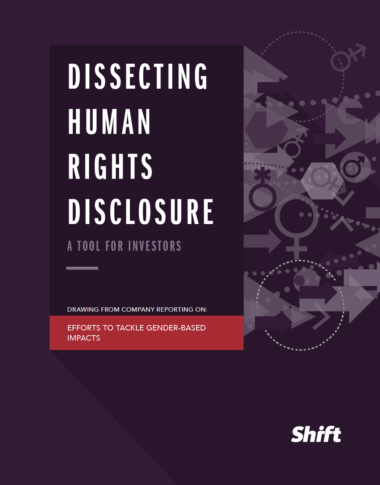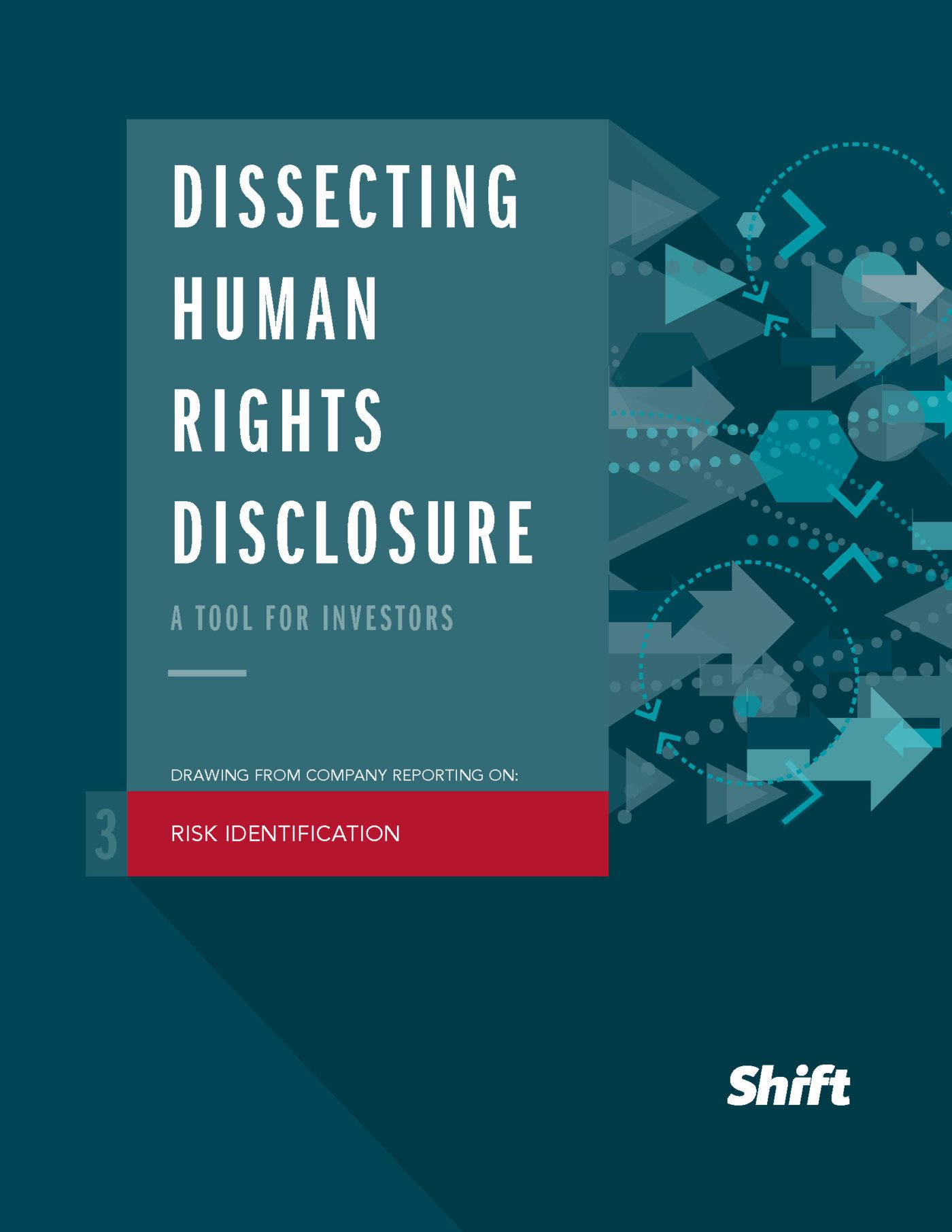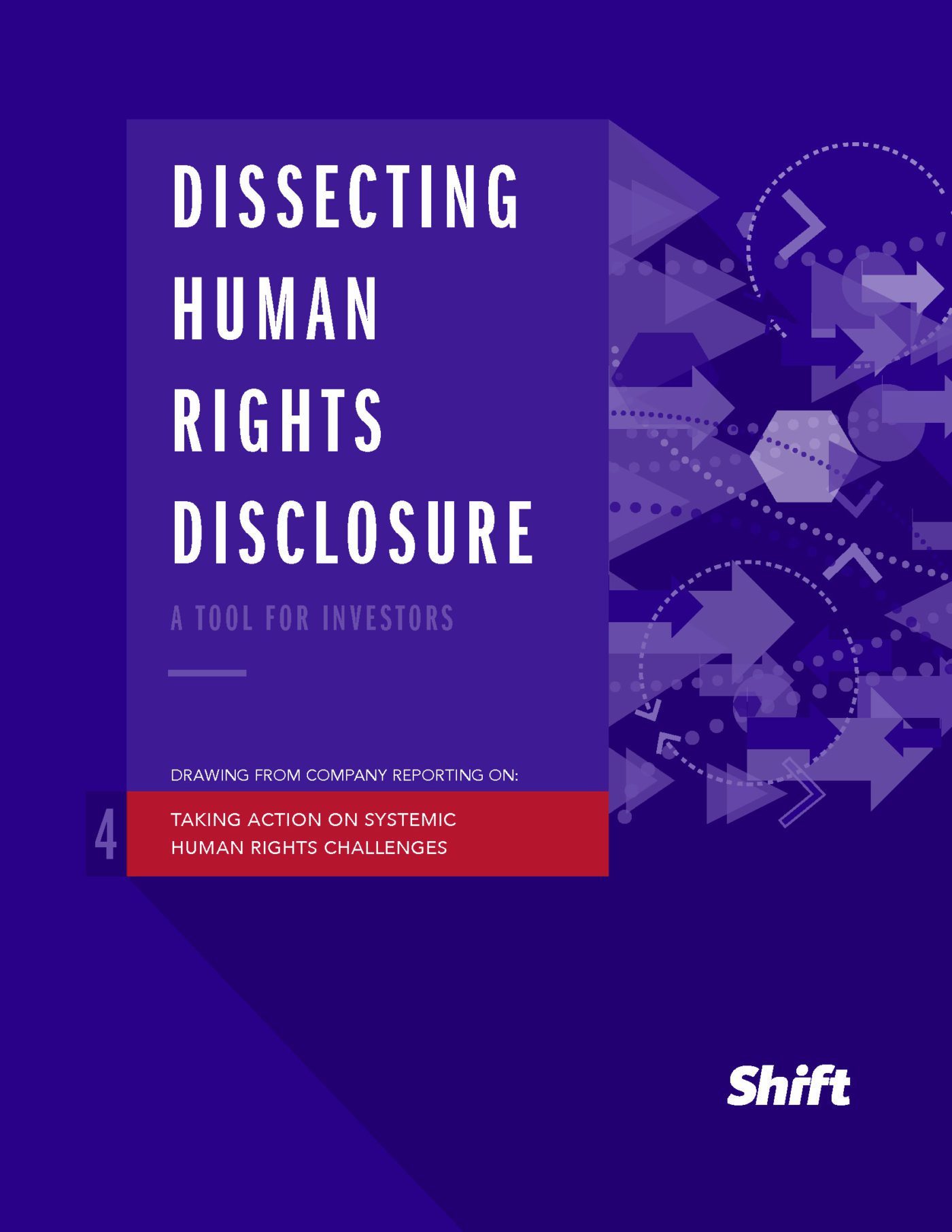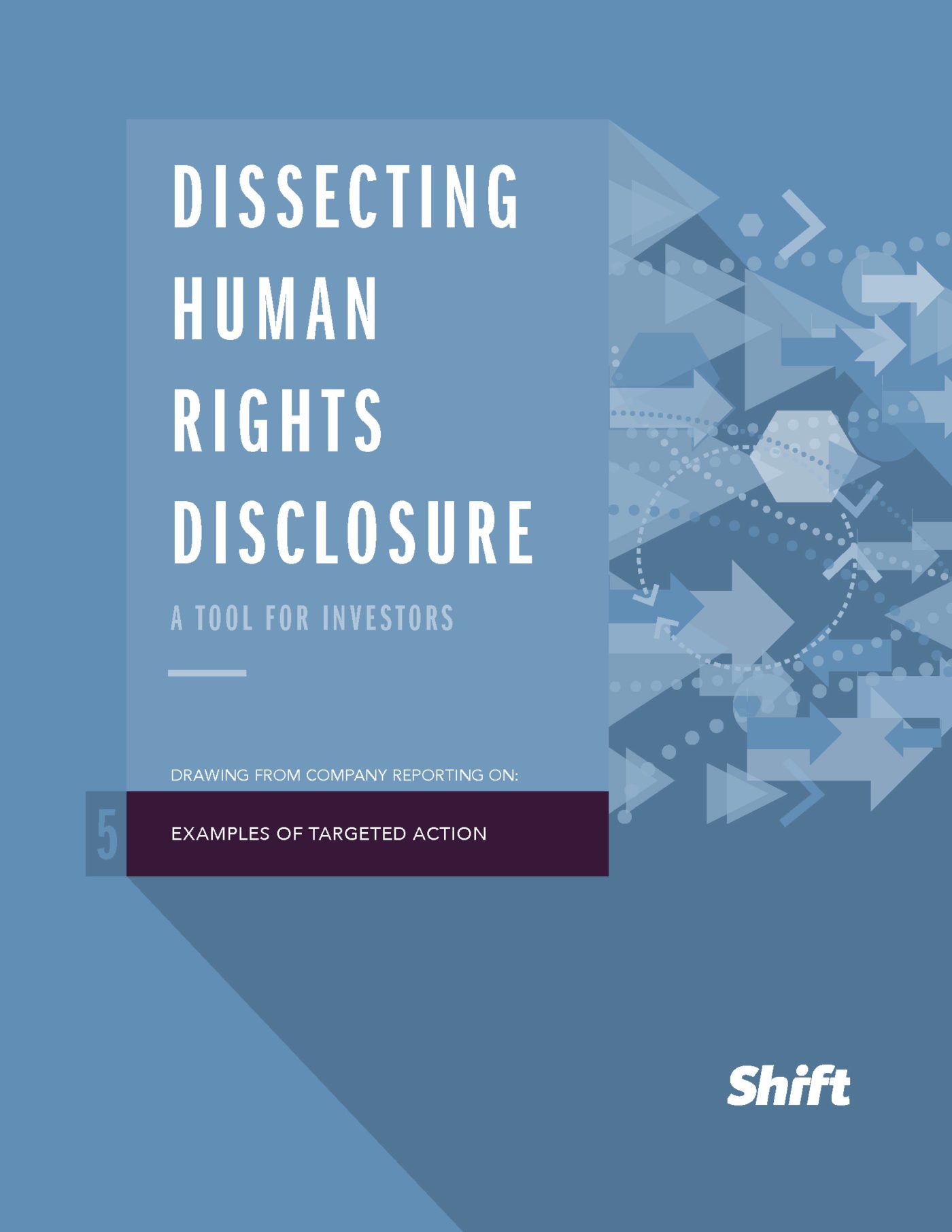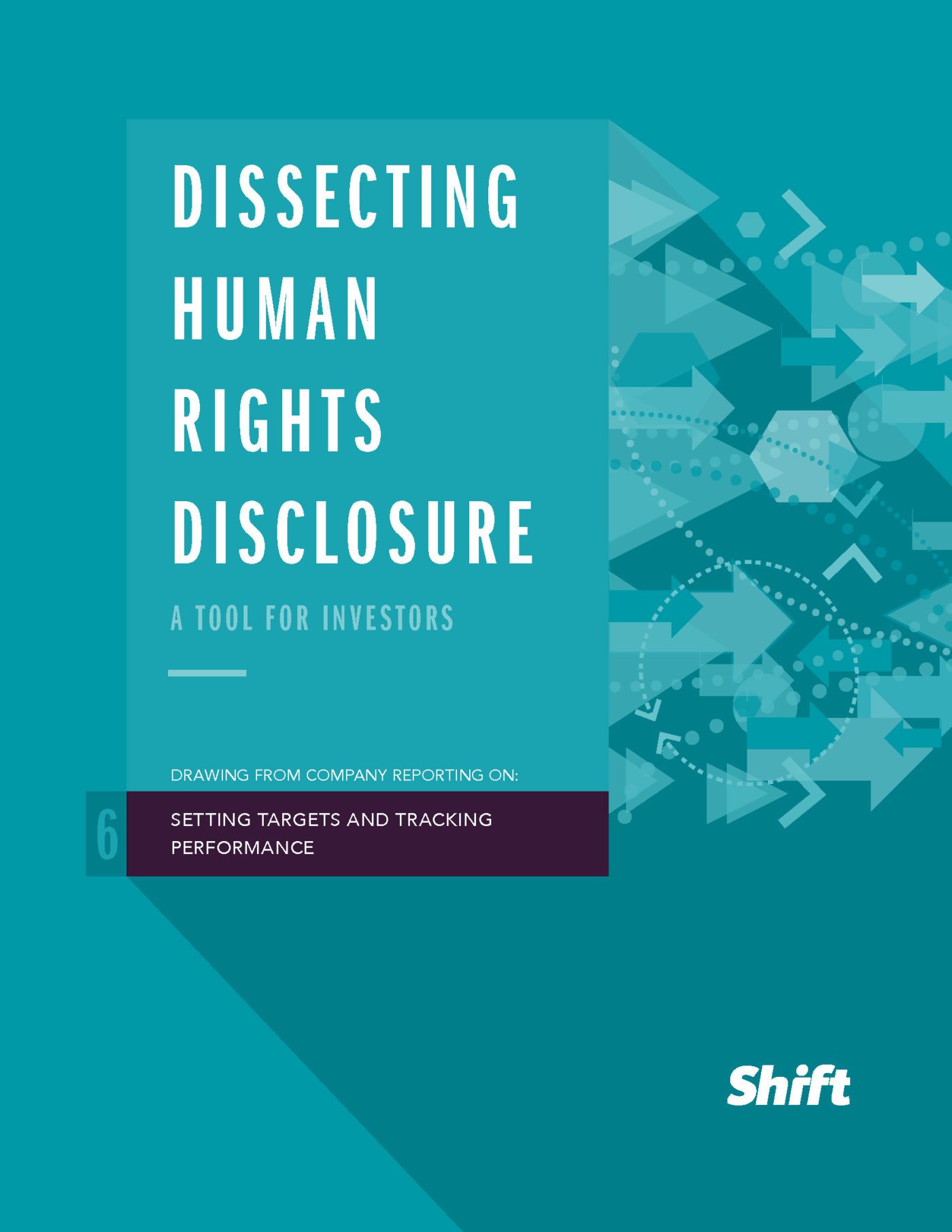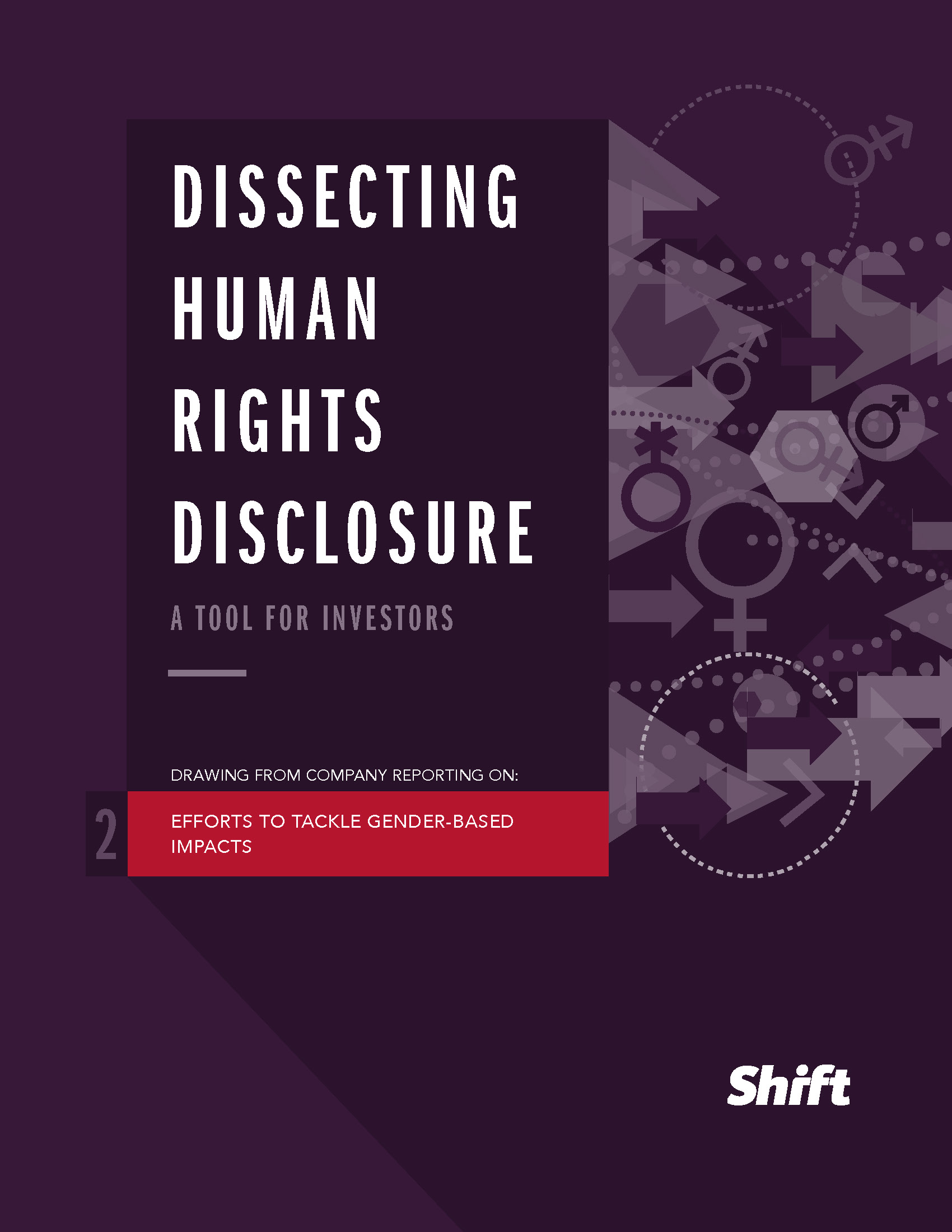On 25 October the Equator Principles Association (EPA) released a suite of new due diligence tools designed to enhance access to grievance mechanisms and enable effective remedy in project finance transactions. Shift was pleased to partner with the EPA’s Working Group on the development of the tools, which will be valuable for Equator Principles Financial Institutions (EPFIs), their clients and consultants. The tools provide guidance for users to enhance remedy at various stages of a transaction and due diligence process.
The Equator Principles:
The Equator Principles set the financial industry benchmark for identifying, assessing and managing environmental and social risks in projects. The Principles are adopted by 137 financial institutions in 38 countries, and apply globally, to all industry sectors and to various project-related financial products.
The tools mark a notable step in the evolution of the standards and guidance of the EPA. They reinforce the importance of improving outcomes for people affected by projects financed by financial institutions in line with international standards (UN Guiding Principles on Business and Human Rights and OECD Guidelines). They do so by focusing specifically on human rights impacts in projects and on seeking to ensure that people affected have access to remedy.
These tools should help financial institutions address a persistent “remedy gap”: namely, that in too many cases, remedy is not available for people who are harmed by business activities that are part of projects they finance. The guidance draws from existing practice amongst leading financial institutions that already understand and demonstrate the important role they and their peers can play by using their leverage to enable remedy. This can have a critical role in strengthening the remedy ecosystem, resulting in better outcomes for vulnerable workers or communities affected by projects.
Two of the five tools (RM1 And RM2) specifically address the need to “front-load” for effective remedy. Practice has shown that financial institutions can assess a client’s preparedness for remedy upfront in the due diligence process, and then use leverage to enhance higher risk clients’ capacity and commitment to provide remedy should it become necessary. The tools provide concrete guidance to execute this approach.
Importantly, the EPA also sets these tools in context. They provide guidance that will most typically apply in the common scenario where financial institutions are linked to a harm, but have not contributed to it by enabling or incentivizing the actions that led to it. They also recognize, however, that there may be situations where financial institutions contribute to harm and that they will then have a direct role to play in providing remedy. This distinction is important in light of the persistent myth that financial institutions will never cause or contribute to impacts in their portfolio, whether through their actions or omissions. This notion has been rebutted by the Office of the High Commissioner for Human Rights and the OECD, which have a mandate to interpret the UN Guiding Principles and the OECD Guidelines respectively, looking at both commercial banking as well as development finance contexts.
Practically speaking, contributing to remedy or supporting a client’s efforts to provide remedy will likely follow very overlapping paths – both will often require using and/or enhancing leverage with clients and working directly with them to execute remedy on the ground. The new EPA tools provide many useful practical tips to support financial institutions in meeting those objectives.
Understanding Linkage and Responsibility for Remedy
“See the EPA Human Rights Guidance Note for a discussion of the ways in which EPFIs and other actors might be connected to adverse impacts, including the UNGPs framework of cause, contribution and linkage. As that note and additional authoritative guidance from OHCHR and the OECD highlight, financial institutions can, in some instances, contribute to project-related impacts. In such cases, EPFIs will have a responsibility not only to use leverage to encourage remedy, but to contribute directly to remedy in a manner proportionate to their contribution. EPFIs should carefully analyze their involvement with impacts in specific cases to understand their responsibility related to remedy.”
Source: EPA Remedy Tools
There are five related due diligence tools in the EPA suite of tools covering grievance mechanisms and remedy:
- GM1: Grievance Mechanism Design: Diagnostic Questions
- GM2: Monitoring Effective Grievance Mechanism Performance: Sample Reporting Metrics
- RM1: Assessing Preparedness for Remedy: Diagnostic Questions
- RM2: Strengthening Preparedness for Remedy: Sample Leverage Actions
- RM3: Using Leverage for Remedy after Impacts Occur: Sample Leverage Actions
The tools are all available on the EPA’s website. Although written in the context of project finance, they will offer inspiration for commercial banks and development finance institutions who are working to take an ‘ecosystem’ approach to remedy.
For more on financial institutions and remedy, see Shift’s Financial Institutions Practitioners Circle publication, “FINANCIAL INSTITUTIONS AND REMEDY: MYTHS AND MISCONCEPTIONS”.
For more information please contact Ashleigh Owens, Financial Institutions Lead at ashleigh[dot]owens[at]shiftproject[dot]org.
